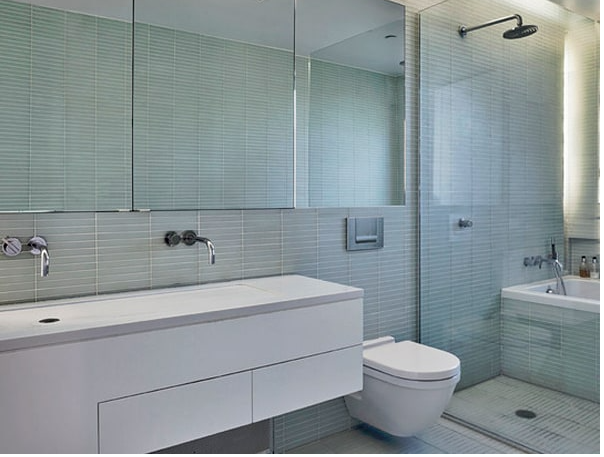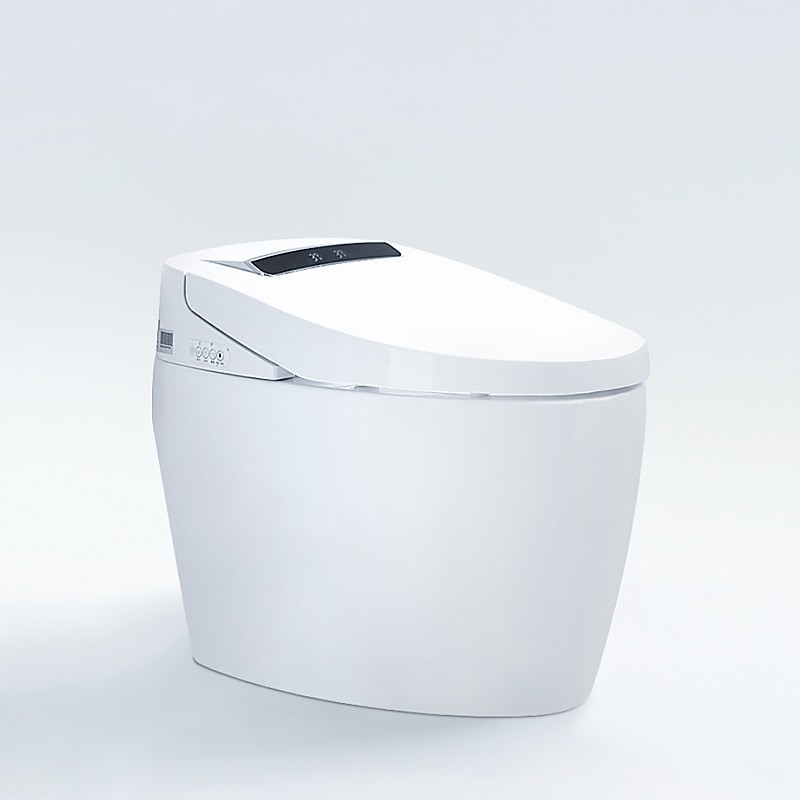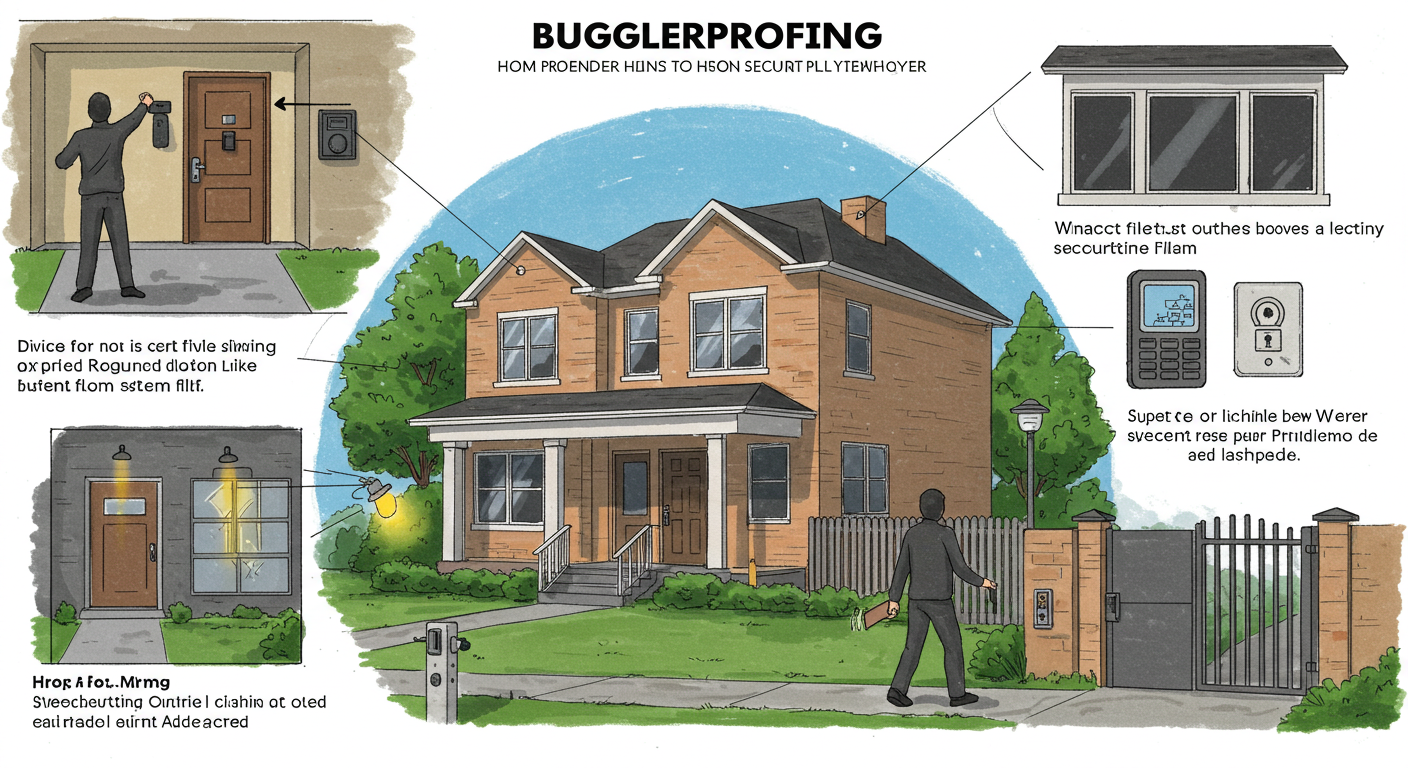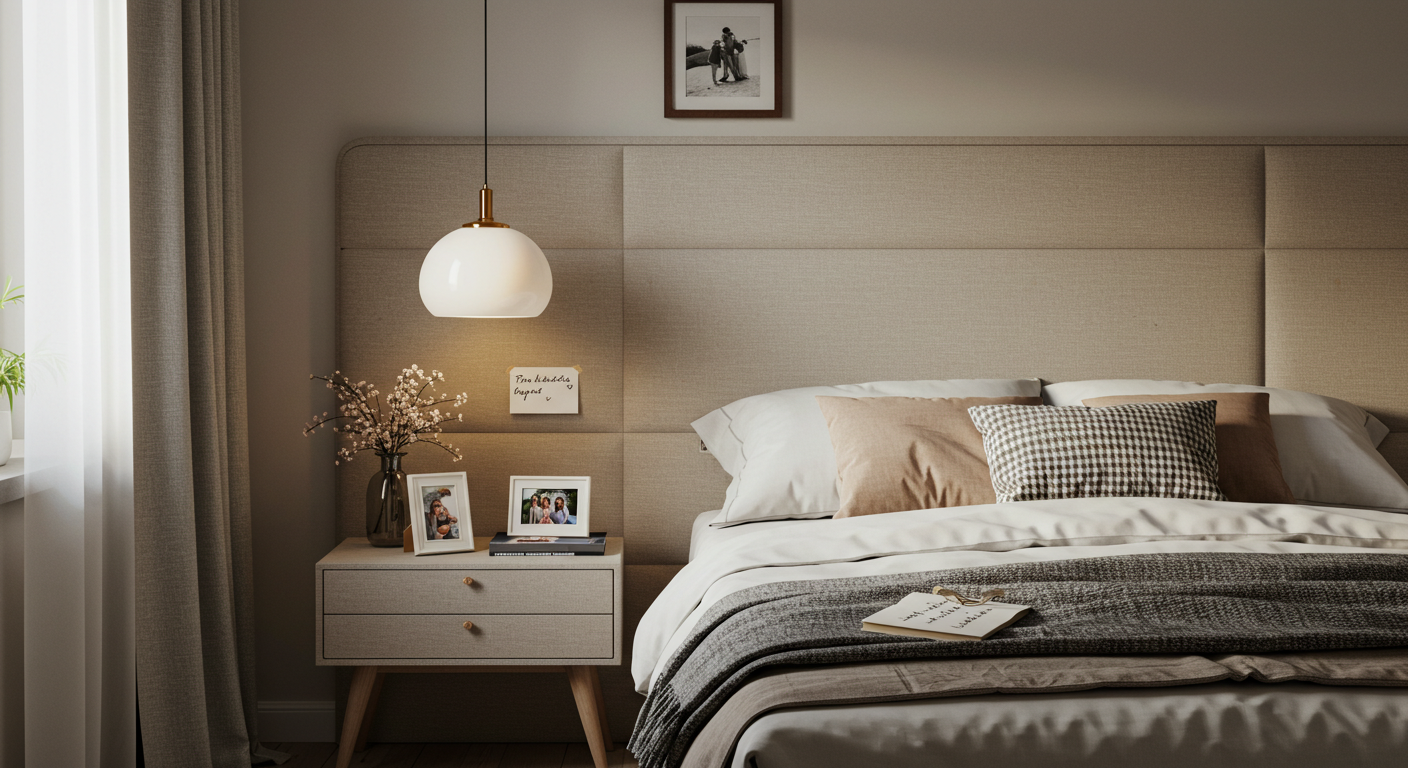Home improvement
10 Reasons Why Stone Tiles Are Best Suited for Homes

Why should stone tiles be at the top of your list when selecting materials for home renovation or construction? For centuries, stone tiles have been the preferred choice due to their exceptionally great qualities.
With their natural beauty, high resilience, and versatile uses, stone tiles are among the most remarkable options for homeowners looking to enhance their living spaces. Let us get further insight into why stone tiles are just the correct choice for your homestead.
Timeless Aesthetic Appeal
Stone tiles provide a timeless sense of elegance to any room. The veining and natural textures in stones like marble, granite, and travertine give a unique look, always a class, and never go out of style.
Moreover, stones have the unique ability to adapt and look good in any room design, from traditional to modern, unlike synthetic products that can make a room appear dated. It can be a focal point or, on the other hand, blend into other design elements around it, adding class to your house.
High Durability
Stone tiles are exceptionally hard-wearing. These tiles, being made of natural materials, will be very robust and physically resistant. Since they are very scratch- and dent-resistant, they are also hard to impact, thus ideal for spaces with high foot traffic, such as entryways, hallways, and kitchens.
Stone tiles also withstand heavy furniture and footsteps much better than most of the other alternative materials, thus remaining beautiful for years. This directly translates to the determining factor that, once laid, you will have beauty and service for many years to come.
Easy Maintenance

Such cleaning tasks are not too daunting for stone tiles. Most stone tile are sealed with sealers that assist in repelling moisture and stains, which translates to easier cleaning. Hence, it usually just requires ordinary sweeping or vacuuming to clear dust and dirt before mopping with a very gentle, pH-balanced cleaner.
The resistance of stone tiles to stains and moisture means they require less frequent intensive cleaning or special treatments compared to high-maintenance materials like carpets or porous tiles.
Natural Insulation Properties
Many people do not know that stone tiles act as natural insulation. Stone has high thermal mass, which means it can absorb and retain heat.
This then regulates the temperatures indoors, so in this way, it may offer warmth indoors during those cooler months but provide a cooler surface during the warmer weather. This natural insulation can enhance indoor comfort and potentially reduce energy costs by decreasing the need for additional heating or cooling.
Environmentally Friendly
Stone tiles will prove very environmentally friendly to use in sustainable home improvement. Stone tiles are naturally available and often locally sourced, which helps reduce the environmental impact of transportation.
Stone tiles do not release harmful chemicals or volatile organic compounds that are great enemies to indoor air quality. Lastly, since the tile is long-lasting and hardy, it has no frequently occurring changes that need to be done, which then means that there is less waste and it is way kinder to the environment.
Versatility in Design

This is one of the key areas in which stone tiles score highly: their versatility. For instance, they come in types that include granite, marble, limestone, and slate, which have variations in look and function. That range provides the ability for a homeowner to select tiles that best fit their design needs and taste.
Moreover, stone tiles can be applied on floors, walls, countertops, and backsplashes, making them quite versatile for a myriad of applications around the home. Whether you want something sleek and modern or something a bit more rustic and natural, stone tiles with one’s style can provide the perfect solution.
Increased Property Value

Stone tiles are a real investment when you want to increase the overall value of the property. Their high-end, luxurious appeal and touch combined with their other durability attributes make the purchase investment very attractive to any buyer out there.
Homes with natural, high-quality stone-tiled environments tend to stand out in the real estate market and may often maintain a greater resale value. Using natural stone means obtaining immediate aesthetic satisfaction and adding value to the property over the long term, which is of particular importance to homeowners looking to increase their property’s marketability.
Unique Character and Charm
Since the color, pattern, and texture are natural properties, each stone piece is unique, ensuring no two are identical. Personally unique, this adds more character and charm to your home.
Whether you opt for the dramatic veining of marble or the earthy tones of slate, one invaluable characteristic these two stone tiles share is their one-of-a-kind aesthetic—a look that is next to impossible to duplicate with human-made alternatives. Moreover, this uniqueness will be a guarantee that your house will personalize its design.
Low Allergens
This is particularly beneficial for allergy sufferers or those with respiratory sensitivities. Stone tiles do not attract dust, allergens, or pet dander like carpets and other soft flooring do. This is what contributes to a healthier indoor atmosphere and prevents allergic reactions and symptoms, thus promoting air quality.
Those who have a family member or another one living in the house who suffers from asthma or other breathing-related conditions would greatly benefit from stone tiles.
Long-Term Investment
| Aspect | Details | Impact on Investment |
| Durability | Stone tiles are highly resistant to wear, scratches, and impacts. | They last for decades, reducing the need for frequent replacements and repairs. |
| Timeless Appeal | Stone tiles have a classic look that does not go out of style. | Their enduring aesthetic ensures continued relevance and appeal, enhancing property value. |
| Long-Term Cost Savings | Despite a higher initial cost, stone tiles save money over time due to their durability and low maintenance needs. | They provide better value over their lifetime compared to less durable materials that may need to be replaced sooner. |
Conclusion
The stone tiles are distinctly superb options for home improvement purposes because of the great combination of beauty, durability, and versatility they offer. Timeless in beauty, very strong, and low in maintenance, they are very attractive to potential users. Besides, inherent attributes like their natural insulation-essence, eco-friendliness, and the ability to add value to a property make it a smart choice for any homeowner.
Invest in stone tiles, and you will set a new standard for both the aesthetics and performance of your home in a material with lasting value and performance. Whether you are working on one room at a time or maximizing a total home renovation, stone tiles can easily help you maintain your goal with very satisfying results.
FAQs
- What are stone tiles?
Stone tiles are flooring or wall materials made from natural stone, such as granite, marble, limestone, or slate.
- Why are stone tiles considered timeless?
Stone tiles have a classic, elegant look that complements various design styles and does not go out of fashion, ensuring long-lasting appeal.
- How durable are stone tiles?
Stone tiles are highly durable and resistant to scratches, stains, and impacts, making them suitable for high-traffic areas.
Home improvement
Is a Heated Seat Bidet Toilet Safe? Common Misconceptions

Heated seat bidet toilets feature various high-tech functionalities, such as adjustable water temperatures, air dryers, and, of course, heated seats. So, they have gained significant popularity over the years, offering users a more comfortable and hygienic bathroom experience.
However, as with any new technology, safety concerns often arise, particularly for households with children or elderly members.
In this article, we will explore common safety concerns and myths about heated seat bidet toilets, focusing on how they affect households with children, seniors, or individuals with specific needs.

1. Common Misconceptions About Heated Seat Bidet Toilets
Despite their growing popularity, several myths about heated seat bidet toilets still exist. Let’s take a look at some of the most common misconceptions:
- Misconception 1: They Are Expensive to Run
A common myth is that heated bidet toilets will significantly increase your electricity bill. However, most of these toilets are energy-efficient, and the heating element consumes only a small amount of energy. The cost of using a heated seat bidet toilet is generally far less than that of running high-power appliances like water heaters. - Misconception 2: They Are Difficult to Install
Some people assume that installing a heated seat bidet toilet requires complex plumbing or electrical work. Most bidet toilets are easy to install, with many models designed for DIY setup. Some even come with plug-and-play functionality, making the installation process simple and quick. - Misconception 3: They Are Only for Luxury Bathrooms
While heated seat bidet toilets may feel like a luxury item, they are available at a range of price points to suit different budgets. Affordable models provide the same benefits as higher-end versions, so you don’t have to spend a fortune to enjoy the comfort and hygiene benefits.
If you’re looking to explore various types of toilets, consider checking out a list of top toilet manufacturers to find high-quality options for your home.
2. Are Heated Seat Bidet Toilets Safe for Children?
One of the most common concerns parents have when considering a heated seat bidet toilet is whether it poses a risk to young children. The main worry is that the heated seat might become too hot and cause burns. However, here are several ways in which these toilets ensure safety for kids:
- Adjustable Temperature: A heated seat bidet toilet offers customizable seat warmth settings, which are typically mild (ranging from 30°C to 40°C). This ensures the seat remains comfortable for both adults and children without overheating. The ability to control the seat’s temperature helps to prevent any risk of burns.
- Built-In Safety Features: High-quality models often come with safety mechanisms that prevent the seat from becoming too hot. For example, once the seat reaches a preset temperature, the system will stop heating automatically or adjust the warmth to ensure safe usage. This feature is especially beneficial in homes with children.
- Supervision for Younger Children: While heated toilets are safe for older children, toddlers or very young kids should always be supervised when using any bathroom fixture, including the toilet with a bidet and a heated seat. Supervision ensures safety, and parents can adjust the settings to meet the comfort and safety needs of their children.
3. Are Heated Seat Bidet Toilets Safe for the Elderly?
For elderly users, heated seat bidet toilets can provide comfort and convenience. However, many older adults may have concerns about the new technology. Let’s explore why a bidet toilet with a dryer and heated seat can be beneficial and safe for seniors:
- Enhanced Comfort: The warmth from a heated seat bidet toilet makes it easier for elderly individuals to sit down and stand up. Cold toilet seats can be uncomfortable, especially for those with arthritis or poor circulation. The heated seat provides a soothing experience that helps reduce discomfort during use.
- Bidet Functionality for Hygiene: For older adults, using a bidet function can improve personal hygiene, as it reduces the need for excessive wiping, which might be painful or challenging. The warm water bidet toilet provides a gentle cleaning experience, offering improved hygiene without the risk of irritation that could come from excessive wiping.
- Electric Safety: Many users are concerned about the risk of electric shock when using a heated bidet toilet, especially seniors. Fortunately, these toilets are equipped with ground fault circuit interrupters (GFCI) to automatically cut off power if an electrical fault is detected, greatly reducing the risk of electrical hazards.
- Elderly-Friendly Design: Many modern toilets with bidet and heated seat models are designed with seniors in mind. For example, some toilets come with easy-to-use remote controls or buttons, allowing elderly individuals to operate the toilet with minimal effort.
4. Are Heated Seat Bidet Toilets Safe for People with Sensitive Skin?
Sensitive skin can be a concern for some individuals, particularly when it comes to new products that come into direct contact with the skin. However, heated seat bidet toilets can be gentle and even beneficial for people with sensitive skin:
- Gentle Water Spray: The water spray from a warm water bidet toilet is gentle and adjustable. This is ideal for individuals with sensitive skin, as the water stream is much less abrasive than traditional toilet paper. The soft, regulated spray minimizes the risk of irritation, rashes, or chafing.
- Comfortable Heated Seats: The warm seat itself can be soothing for people with sensitive skin. In cold weather, a heated seat offers immediate relief from cold toilet seats that might cause discomfort. As long as the temperature is set to a comfortable level, there’s no risk of overheating the seat or causing skin issues.
- Material Safety: Many heated bidet toilet models are made from hypoallergenic materials that are safe for people with sensitive skin. If skin sensitivity is a concern, it’s important to look for products that highlight these features.
5. Can a Heated Seat Bidet Toilet Overheat?
The fear of a heated seat bidet toilet becoming too hot is another common misconception. While some people worry that a heated seat could burn them, modern designs ensure safety in the following ways:
- Thermostatic Control: Heated bidet toilets are equipped with thermostats that regulate the seat temperature, keeping it within a safe and comfortable range. The temperature is typically not hot enough to cause burns, even with prolonged sitting. If the seat ever becomes too warm, most models will automatically adjust or shut off to maintain a safe level.
- Built-in Sensors: Many bidet toilets are designed with safety sensors that monitor the seat’s temperature. If the system detects any issues, such as overheating, it will deactivate the heating element to prevent accidents. This ensures the toilet remains safe for everyone.
- Regular Maintenance: Overheating can occur if the system isn’t properly maintained. To avoid this, it’s recommended that you regularly check and maintain your toilet with a bidet and a heated seat. Most manufacturers will provide guidelines on how to keep the system in good working order.
Conclusion
In conclusion, heated seat bidet toilets are safe for people of all ages, including children and the elderly, when used properly. They are designed with safety features, such as adjustable temperatures and automatic shutoffs, to ensure a comfortable and safe bathroom experience.
By addressing common myths and concerns, it is helpful to clear up any doubts you may have about heated seat bidet toilets. They are not only luxurious but also reliable and safe when installed and used correctly, making them a great choice for modern households looking to enhance their bathroom experience.
Home improvement
Burglar proofing your home

When we think about home security, we often imagine high-tech alarm systems, locks on doors, and maybe even a big dog that barks at anything that moves. But there’s more to burglar-proofing your home than just the basics. The truth is, many homes experience burglaries every year, resulting in not only financial losses but the emotional pain that comes with having your privacy invaded and your safety compromised. Fortunately, there are practical ways to burglar-proof your house that go beyond just installing a security system for the home. Here’s a fresh approach to making your home safer, one step at a time.
The Power of Simple, Everyday Deterrents
Most burglars aren’t looking to break into homes that are clearly secured. They tend to look for places that are easy targets. One of the best things you can do to deter a potential thief is to make your home look occupied—even when you’re not home.
Start by ensuring your yard is well-lit, especially around entry points. Motion-sensing lights can be a great way to surprise intruders, making them think twice before approaching your home. Next, don’t forget about windows and doors. Keep your blinds and curtains closed when you’re not around. Burglars love to scout houses for easy access, and a dark, empty room with a view to an open window is an invitation.
You might also want to consider getting a couple of inexpensive “fake” security cameras or even placing a security system sticker on your window. While these aren’t as effective as an actual security system for the home, they can give the illusion that your house is being monitored, which might be enough to scare off some criminals.
Reinforcing Your Doors and Windows
Your doors and windows are your first line of defense. But surprisingly, many burglars gain access through weak points in these areas. To burglar-proof your home, it’s crucial to make sure your doors and windows are as secure as possible.
Start with your front door. A solid wood or metal door is much harder to break through than a hollow one. Also, make sure the hinges are on the inside, as this makes it much more difficult for burglars to tamper with them. For extra protection, install a deadbolt lock along with a high-quality doorknob lock. Don’t forget to secure the door frame and strike plate with long screws to prevent someone from kicking it in.
Windows are another easy target, especially those that are left open or unlocked. A simple trick is to place a dowel or metal bar in the window track to prevent it from being easily lifted. Also, be mindful of the locks you use. Sliding glass doors, for example, are vulnerable, so consider a security bar or a locking pin to secure the track.
Landscaping and Visibility
Believe it or not, your landscaping could play a major role in burglar-proofing your home. Overgrown bushes, tall trees, and unkempt gardens may provide cover for burglars to hide in while they plan their move. Trim back any shrubbery that blocks the view of your doors or windows from the street. This not only helps you keep an eye on the exterior of your home but also makes it more difficult for a burglar to approach without being seen.
Consider adding thorny bushes or plants around windows and doors. Not only do they make it more difficult to break in, but they also serve as a visual deterrent. If someone sees a bush full of thorns, they might think twice about approaching.
Utilizing Technology to Your Advantage
While simple deterrents like lighting and landscaping are effective, don’t overlook the power of technology when it comes to burglar-proofing your home. A modern security system for the home can do much more than just trigger an alarm if a burglar enters. Many systems now come with features like surveillance cameras, remote monitoring via smartphone, and even doorbell cameras that allow you to see and talk to people at your front door, even when you’re not at home.
You can also install smart locks that allow you to lock and unlock your doors from your phone. This is especially useful if you’re coming home late at night and want to ensure that all your doors are locked, or if you want to grant someone access while you’re away. Smart doorbells, which include video and motion sensors, allow you to keep an eye on who’s approaching your home, helping you spot suspicious behavior before it escalates.
Secure Your Garage and Outbuildings
Many people forget to secure their garages or outbuildings, but these areas can be an easy entry point for burglars. A garage door opener, for instance, can be hacked or simply broken into. Make sure your garage door is equipped with a sturdy lock and avoid leaving keys, valuables, or tools in plain sight inside. Install a motion sensor light in the garage to make it less inviting for burglars at night.
If you have a shed or other outbuildings on your property, treat them with the same level of care as your home. Secure windows and doors with high-quality locks, and consider installing motion lights or even a small alarm system.
Building a Community of Awareness
One of the most effective ways to prevent crime in any neighborhood is to foster a sense of community awareness. Talk to your neighbors about looking out for each other, especially if you’re planning to be away for an extended period. Burglars often target homes that are isolated or unmonitored, so having a neighborhood watch in place can go a long way in keeping your property safe.
Sharing information about unusual activity or suspicious people in the area can help prevent crimes before they happen. Encourage neighbors to report any strange vehicles, unfamiliar faces, or anything that seems out of place.
Conclusion
Burglar-proofing your home doesn’t require a major overhaul or expensive technology; sometimes, it’s the simple things that make the biggest difference. By implementing a combination of practical steps, such as reinforcing doors and windows, adding lighting, securing your garage, and utilizing technology, you can significantly reduce your chances of becoming a victim of burglary. Remember, burglars are looking for easy targets, so make your home one that’s too much trouble to mess with. With a little effort and a few thoughtful changes, you can make your home a safer, more secure place to live.
Home improvement
Personalised Interiors: Creating a Home That’s Uniquely You

A home should be more than just a place to live—it should be a reflection of your personality, lifestyle, and values. Personalised interiors go beyond trends to create spaces that feel authentic, comfortable, and uniquely yours. Whether you’re designing a new home or revamping your existing space, thoughtful choices in colours, materials, and furnishings can make all the difference.
The Power of Personalisation in Interior Design
Personalised interiors allow homeowners to express their individuality while enhancing the functionality of their spaces. Customising your home isn’t about following design rules—it’s about curating a space that aligns with your tastes and daily routines.
A personalised home should reflect:
- Your Lifestyle: The way you live should shape your space. Whether you enjoy hosting lively gatherings with friends, need a peaceful retreat to unwind after a long day, or require a productive and functional home office, your design should reflect and support your daily routines and priorities. Creating a home that complements your lifestyle ensures comfort and ease in every aspect of your life.
- Your Interests: Your home is an extension of who you are. Displaying art collections, travel souvenirs, cherished books, or family heirlooms can infuse your space with personality and meaning. These elements not only add character but also tell your unique story, making your home feel truly yours while sparking conversations with visitors.
- Your Aesthetic Preferences: Your interiors should resonate with your sense of style. Whether you’re drawn to clean lines and simplicity in a minimalist design, enjoy the bold mix-and-match approach of eclectic decor, or prefer the timeless elegance of classic styles, your choices should make you feel relaxed, inspired, and right at home in your surroundings.
Key Elements of a Personalised Home
1. Colour Psychology and Mood
Colour plays a significant role in setting the tone of your home. Different hues evoke different emotions—soft blues and greens create a calming atmosphere, while bold reds and yellows add energy and vibrancy. Consider using accent walls or statement furniture to introduce colours that resonate with your personality.
2. Custom Furniture and Unique Pieces
Mass-produced furniture may serve its purpose, but investing in bespoke pieces can elevate your home’s uniqueness. Custom-built shelving, one-of-a-kind coffee tables, or handcrafted décor items can add a distinct personality to your interiors.
3. Meaningful Décor and Accessories
Personalised interiors often incorporate meaningful décor elements. Displaying travel souvenirs, vintage finds, or artwork from local artists can transform a generic space into something truly personal. Even everyday items like throw pillows and rugs can be chosen with patterns and textures that reflect your style.
4. Layering Textures for Depth and Warmth
A personalised home isn’t just about visual appeal—it’s also about how it feels. Incorporating tactile diversity through materials like wood, stone, linen, and velvet adds dimension and warmth to a space. Mixing smooth and rough textures can create an inviting and balanced environment.
5. Lighting That Complements Your Space
Lighting is one of the most underrated aspects of personalisation. From statement chandeliers to warm bedside lamps, lighting can transform the ambience of a room. Layering different light sources—such as overhead lighting, task lighting, and ambient lighting—creates flexibility for different moods and activities.
Bringing It All Together with Expert Guidance
Creating a home that truly reflects your personality requires thoughtful curation, and professional expertise can help bring your vision to life. Novari Collective interior design services specialise in tailoring spaces to the unique preferences of homeowners, ensuring a cohesive and personalised outcome.
From selecting the right furniture to balancing textures and lighting, working with a professional ensures that every detail is aligned with your vision. Whether you prefer a modern aesthetic or a more traditional approach, expert designers can help translate your ideas into a well-executed design that feels uniquely yours.
A Reflection of You
Your home should be a reflection of you—your lifestyle, experiences, and preferences. By embracing personalised interiors, you can create a space that feels truly authentic and comfortable. Thoughtful details, curated décor, and professional guidance can transform any house into a home that tells your story. Ready to design a space that’s uniquely yours? Start by making intentional choices that align with your personality and daily life.
-

 GENERAL1 year ago
GENERAL1 year agoDiscovering the Artistic Brilliance of Derpixon: A Deep Dive into their Animation and Illustration
-

 Posts1 year ago
Posts1 year agoSiegel, Cooper & Co.
-

 Lifestyle1 year ago
Lifestyle1 year agoPurenudism.com: Unveiling the Beauty of Naturist Lifestyle
-

 Lifestyle1 year ago
Lifestyle1 year agoBaddieHub: Unleashing Confidence and Style in the Ultimate Gathering Spot for the Baddie Lifestyle
-

 HEALTH1 year ago
HEALTH1 year agoTransformative Health Solutions: Unveiling the Breakthroughs of 10x Health
-

 Entertainment1 year ago
Entertainment1 year agoGeekzilla Podcast: Navigating the World of Pop Culture, Gaming, and Tech
-

 Entertainment1 year ago
Entertainment1 year agoKhatrimaza Unveiled: Exploring Cinematic Marvels and Entertainment Extravaganza
-

 BUSINESS1 year ago
BUSINESS1 year agoUnlocking the Secrets to Jacqueline Tortorice Remarkable Career and Accomplishments
